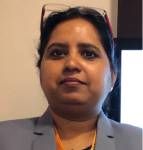Examining the Relationship Between Monitoring Learner Progress and Course Learning Outcomes Achievement
DOI:
https://doi.org/10.18311/jeoh/2021/28339Keywords:
Feedback, Formative Assessment, Learning Outcomes, Student Assessment, Student ProgressAbstract
Students of the first-year nursing program were recently experienced continuous and formative assessment through their training program. This is to improve the achievement of the students and the Course Learning Outcomes (CLOs). Therefore, the aim of the current study was to investigate the relationship between monitoring students' performance through continuous and formative assessments, student, and CLOs achievements. The study revealed a significant increase in the students' marks in all assessment methods after the mid-semester exams. In addition, the CLOs achievement is increased when the students got feedback.
Downloads
Metrics
Downloads
Published
How to Cite
Issue
Section
Accepted 2021-08-11
Published 2021-09-20
References
Yudkowsky, R., Park, Y. S., & Downing, S. M. (Eds.). Assessment in health professions education. 2019. Routledge.
Tweed, M., & Wilkinson, T. Student progress decision-making in programmatic assessment: can we extrapolate from clinical decision-making and jury decision-making? BMC medical education, 2019. 19(1), 176.
Beekhoven, S., De Jong, U. & Van Hout, H. Different courses, different students, same results? An examination of differences in study progress of students in different courses. Higher Education 46, 37–59 (2003). https://doi.org/10.1023/A:1024414529666
Operational Excellence and Assessment Support NCAAA standard document [Online]. Available: http://ncaaa.org.sa
Shumway, J Harden, Ronald AMEE Guide No. 25: The assessment of learning outcomes for the competent and reflective physician. Medical Teacher. 2003. https://doi.org/10.1080/01421 59032000151907
Vereijken, M.W.C., van der Rijst, R.M., van Driel, J.H. et al.Student learning outcomes, perceptions and beliefs in the context of strengthening research integration into the first year of medical school. Adv in Health Sci Educ 23, 371–385 (2018). https:// doi.org/10.1007/s10459-017-9803-0
Alzubaidi, L. Measurement of course learning outcomes for data structure using the combination approach. Int. J. Netw. Secur. (IJCSNS), 2016.16(1), 57.
Farooq, Q. U., & Naqash, M. T. (2018). Comparison of Numerical Assessment and Periodic Progress of Specific Course Learning Outcomes for Introductory and Reinforce Level Engineering Courses. Education, 2018. 8(3), 42–47.
Goff L, Potter MK, Pierre E, Carey T, Gullage A, Kustra E, Lee R, Lopes V, Marshall L, Martin L, Raffoul J. Learning outcomes assessment a practitioner's handbook. 2015
Self-Study Report for Program, Fakeeh College for Medical Sciences; 2020.
University of Central Florida. UCF Academic Program Assessment Handbook February 2008.
Van Der Vleuten, C. P. M., et al. "Twelve Tips for programmatic assessment.” Med Teach. 2015. 37(7): 641–646.
Walsh, K. (Ed.). Oxford textbook of medical education. Oxford University Press. 2013
Russell, J.-E.; Smith, A.; Larsen, R. Elements of Success: Supporting at-risk student resilience through learning analytics. Computers & Education, [s. l.], v. 152, 2020. https://doi.org/10.1016/j.compedu.2020.103890
C. P. M. van der Vleuten, L. W. T. Schuwirth, E. W. Driessen, J. Dijkstra, D. Tigelaar, L. K. J. Baartman & J. van Tartwijk. A model for programmatic assessment fit for purpose, Medical Teacher, 2012. 34:3, 205–214, https://doi.org/10.3109/0142159X.2012.652239
Norcini J, Anderson MB, Bollela V, Burch V, Costa MJ, Duvivier R, Hays R, Palacios Mackay MF, Roberts T, Swanson D. 2018 Consensus framework for good assessment. Medical teacher. 2018 Nov 2; 40(11): 1102–9.
 Shimaa Elaraby
Shimaa Elaraby







